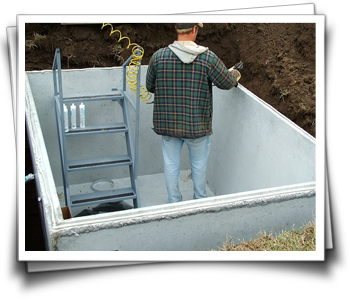Protective Shelter
 Not a day goes by when the weather channel or the news isn’t reporting on increased and larger storms. Specifically, here in Virginia we are not strangers to extreme weather patterns. More homeowners are deciding to take steps to add a protective shelter on their property. A protective shelter can be built into your home or installed on your property in the ground.
Not a day goes by when the weather channel or the news isn’t reporting on increased and larger storms. Specifically, here in Virginia we are not strangers to extreme weather patterns. More homeowners are deciding to take steps to add a protective shelter on their property. A protective shelter can be built into your home or installed on your property in the ground.
A personal shelter is designed and built to provide protection from hurricanes and tornados. It can also be constructed with handicap access and customized to accommodate family and friends. When you can’t evacuate the area, a personal shelter can save your life.
It is important to have the shelter stocked with short-term items for survival as recommended by FEMA such as: a 72-hour supply of food and water, flashlights, radio and blankets and clothes. A shelter is a place to hide while the storm passes over your home. Even if the whole house tries to blow away, your shelter needs to be built strong enough to remain in place.
Tips for Building a Protective Shelter
The shelter needs to be centrally located for ease of access. If you’re building the shelter into your home it needs to be in the strongest and safest portion of the structure. If placing in the ground the shelter needs to be in a safe location away from trees or structures that can block the entrance or exit if blown over.
The building plans for the structure need to be created based on how many people are using the shelter. It is also important to make special access entries for anyone with special needs so they can make it safely in and out of the structure.
Although often times overlooked in the design process, a storage area or safe in your protective shelter can provide protection for your most important documents and valuable possessions.
It is imperative to not only have a warning system to determine when to go into the shelter but also a way to find out when it is safe to leave the shelter. Outside communication is vital. Therefore, it is important to plan ways to access the internet, radio reports, and TV reports. So having a TV and radio in your shelter is a must. This can be accomplished with generators, hardwired internet and batteries to run electronic devices.
Using a Professional to Build Your Protective Shelter
A professional contractor has designs and blueprints that can work for a range of project budgets. They can give you a customized shelter or you can go with a basic stock style unit. The contractor can assess your home and property to recommend the best location to install a shelter on your property or home. They also will ensure that the building plans are approved, follow applicable building codes, obtain permits and make sure any needed final inspections are done on time and passed.
Having access to a contractor that can customize your shelter is very important. You may need to be in your shelter for hours as you wait for updates or massive storms to pass overhead. Having good air flow, heat or air conditioning and a calm space can be integral to a comfortable survival.
A licensed contractor will coordinate the installation of your shelter. Depending on the customization and needs of your home, you may need different craftsmen such as carpenters, plumbers, electricians and perhaps even security installers. When coordinating multiple sub-contractors in a small space that are working together, it is imperative to have a leader that can make sure all the craftsmen stick to the timeline. This will save costs and avert unnecessary time delays. Choosing a reputable contractor is the cost effective choice. They have the tools, experience and knowledge to expediently finish your project within the project budget.
When choosing a contractor, it is important to choose someone that has a good reputation and is licensed and insured for your security.
In Albemarle, Augusta, and Nelson counties the right choice for building your protective shelter is Hatter and Sons, Incorporated. For the best for all types of renovations, new home construction, commercial projects and service, call Philip Hatter today @ (540) 569-6351 for a consultation.


